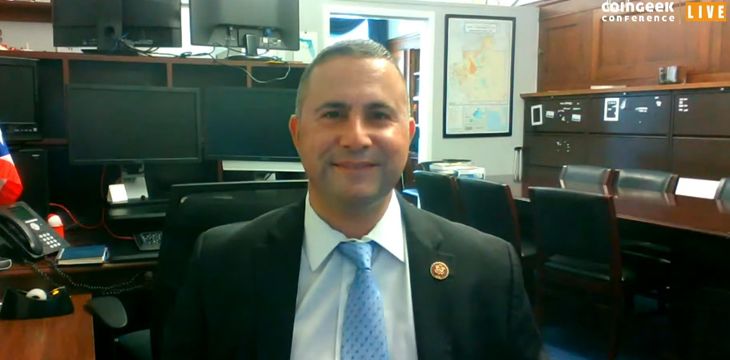|
Getting your Trinity Audio player ready...
|
Digital signatures on the blockchain will be recognized and enforceable by the U.S. law if a bill brought before Congress is passed. The bill will make smart contracts legally binding, setting the stage for enterprise adoption of blockchain technology.
Titled “Blockchain Records and Transactions Act of 2020,” the bill was introduced by Rep. David Schweikert, the Republican congressman from Arizona and co-sponsored by Rep. Darren Soto, his Democratic counterpart from Florida.
It seeks to amend the U.S. law on electronic signatures in commerce and extend its applicability “to electronic records, electronic signatures, and smart contracts created, stored, or secured on or through a blockchain, to provide uniform national standards regarding the legal effect, validity, and enforceability of such records, signatures, and contracts, and for other purposes.”
The bill has been introduced before, back in 2018, but it fizzled out on the floor of the house and never came to a vote. If passed now, it will make smart contracts and other digital signatures created, stored or secured on the blockchain legally enforceable.
The bill is the latest effort by the U.S. to regulate the digital currency industry as it continues to grow and gain mainstream adoption. In September, the House of Representatives introduced two new bills—one seeking to give the U.S. Securities and Exchange Commission (SEC) authority to determine which digital currencies are securities, and the second to give the Commodity Futures and Trading Commission (CFTC) regulatory power over digital currency exchanges.
Darren Soto has been one of the key figures in the U.S. march towards regulating digital currencies. The Florida lawmaker co-sponsored the Digital Commodity Exchange Act of 2020 that seeks to harmonize national regulations for exchanges. He is also a co-chair of the Blockchain Caucus, a bipartisan Congressional group that has been working towards laying the regulatory groundwork for blockchain adoption.
Soto is a firm believer in balancing innovation and regulation, as he revealed during his keynote speech at the recently-concluded CoinGeek Live. The best approach would be the one taken towards the growth of the Internet in the early 2,000s, he told the audience, stating:
“You are going to see initial legislation what we would refer to as light touch legislation that would be a lot like when a lot of the internet start-up companies were just emerging in the late 90’s early 2000’s.”
Watch Rep. Darren Soto’s talk at CoinGeek Live Day 2.

 03-03-2026
03-03-2026 




